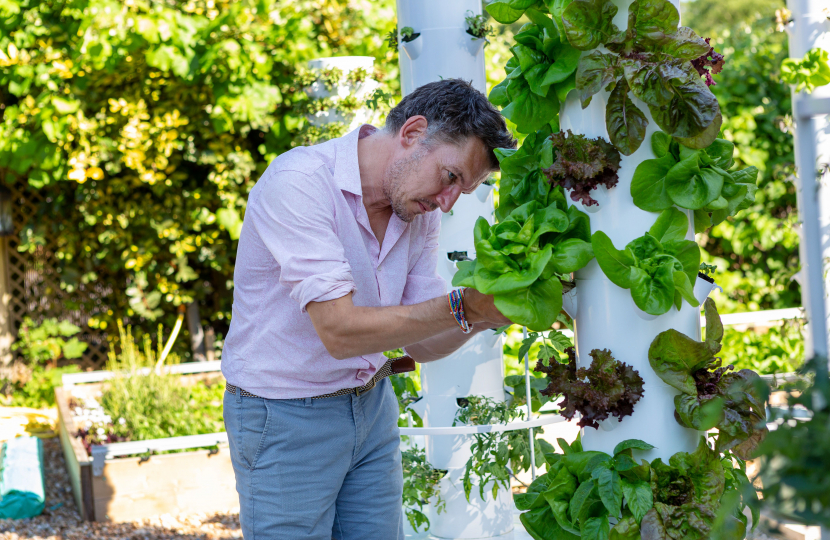
This article was written by Damian and published in this week's Herald and Petersfield Post:
"The Food Strategy published last week has particular significance for us locally, not only as buyers and consumers, but also as producers and growers, with farming an important local sector here in East Hampshire.
With plans to drive both innovation and use of technology in farming, the strategy aims to increase domestic production and provide greater access to healthy, affordable and sustainably produced food.
It is a bold ambition and one that echoes many of the findings from the Land Use and Agriculture Action Group at last year’s COP26 East Hampshire event.
Recent events have reminded us all about the importance of domestic food production, and it is right that we take steps to build greater resilience and security within the food production chain.
The UK is largely self-sufficient in many products, including wheat, most meats, eggs and some parts of the vegetable industry.
Overall, for the foods that we can produce in the UK, we produce around 74 per cent of what we consume, and that has been broadly stable for the past 20 years.
The food strategy aims to maintain that level, with the capacity to increase it in areas such as seafood and horticulture.
The food industry is the largest manufacturing sector in the UK – larger than automotive and aerospace combined. Food manufacturers provide employment opportunities and investment in local communities, but do of course rely on the farmers and fisherman who supply them.
The plans outlined last week – including incentives for industry and investment in research - will support farmers to harness innovation to boost home-grown fruit and vegetable production, and in turn create new job opportunities across the country.
For example, the UK currently only produces 15 per cent of tomatoes supplied domestically, but new generation technology, such as sustainable and efficient glasshouses, has opened up new opportunities for British producers which will help to reduce reliance on overseas production.
Locally, at Applegarth in Grayshott, we have seen the use of aeroponic farming techniques, with produce growing on vertical towers. This innovative programme not only uses less land space but makes feeding and watering of different crops more efficient and more sustainable.
The food strategy also outlines an ambition for half of public sector spending on food procurement to be food either produced locally or to higher standards.
In line with recommendations from the Dimbleby review, a new data partnership between industry and Government will be established, providing consumers with more information about the food they eat while incentivising industry to produce healthier, more ethical and sustainable food.
There are also plans to consult on how to improve on and expand animal welfare labelling, helping consumers identify when products meet or exceed the UK’s high standards, and also consult on food waste reporting for larger businesses over a certain size.
An independent review to tackle labour shortages will be launched, looking at the role of automation, domestic labour and migration.
To meet the most immediate needs of the sector, the Government has also announced a further 10,000 visas (up from 30,000) for seasonal workers and an expansion of the scheme for poultry farming.
A particularly important part of the food strategy will be a new framework for land use in England, which will be published next year.
Agriculture currently accounts for 72 per cent of our land use, and we need to feed a growing population; with 5 million more people in this country by 2040.
The NFU has set an aspiration for the farming sector to achieve net zero by 2040, alongside the UK’s overall target of decarbonising all sectors of the UK economy to meet net zero by 2050.
Understanding how to balance the needs for agricultural development, new housing as well as environmental management is as vital part of determining how best to meet the demands and targets ahead of us."
Photo: credit to Applegarth Farm, Grayshott



